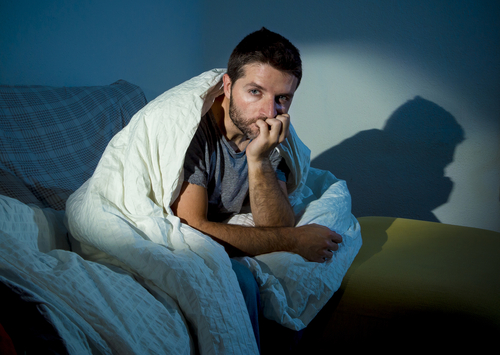People who use marijuana can have a range of issues physically and mentally. Addiction is just one of them, but memory impairment and altered brain development is another. Sleep problems can occur with people who abuse marijuana, especially when initial use happens at an early age. Find out why people who abuse marijuana have increased sleep problems and how to support a loved one with addiction.
Marijuana Use
Marijuana ranks as one of the most widely used illicit drugs in America. It is even gaining recognition for medicinal use in some states which is creating a push for legalization. While the drug is consumed across a broad range of ages, peak rates of use occur in older teens and young adults under age 30. Marijuana has gained something of societal acceptability across the U.S. Proponents of the drug often understate or ignore concerns associated with its use. Out of the combined pool of actual and habitual marijuana users, nearly one in 10 people will develop a cannabis addiction. This rate doubles for teens who use the drug and increases from there.
Sleep Issues
Fairly common sleep problems include insomnia, excessive daytime sleepiness, and a failure to gain restful benefits of sleeping. Some people only have occasional sleep problems or minor ones but nothing that leads to substantial changes to quality of life. Some people do, however, develop more severe sleep problems and may qualify for an official diagnosis of a sleep disorder.
Linking to Marijuana Use
A potential connection between marijuana use and the onset of sleep problems has been explored. Between 2007-2008, participants in the survey from the Centers of Disease Control and Prevention highlighted personal use of marijuana or cannabis in other forms and at what age they started using it. Also incorporated was frequency of use and prevalence of sleep problems. ANyone with at least 50 percent of the time being severely impacted by sleep-related issues were noted. In conclusion, the study found people who used marijuana at all were more likely than those who did not to have issues with insomnia, unusual daytime sleepiness, or unrestful sleep. The earlier it was used the harder it was to sleep well since developmental changes in the brain increase chances of sleep problems arising. This important study is just one that highlights the challenges of figuring out how to support a loved one with addiction who may be struggling with marijuana use and associated risks.
Arbor Behavioral Healthcare knows that lifetime sobriety, health, and wellness, are completely possible. Each of our treatment programs offer the opportunity for holistic healing utilizing an integrative approach for the recovery of mind, body, and spirit. You can recover. You will recover. Call us today for more information: 844-560-7269

